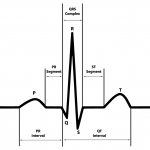

IPCC Report: 10 Innovative ways people around the world are tackling climate change
The IPCC report said global warming of about 1.1 degrees Celsius has brought changes worldwide, from droughts and storms to melting glaciers. But it is not too late to cut climate-heating emissions and keep the temperature rise within internationally agreed goals of “well below” 2C and ideally 1.5C – which would help stop or slow down some of the impacts, the report said.
CCRIF to make US$40 Million Pay out to Haiti Following Devastating August 4 Earthquake.
CCRIF SPC will make a pay out of approximately US$40 million to the Government of Haiti following the devastating magnitude 7.2 earthquake that struck Haiti on August 14th, 2021, significantly impacting the city of Les Cayes.
Extreme Weather: Malaysia’s Flood Woes To Worsen
While Malaysia appears unaffected by the most extreme weather events such as earthquakes, hurricanes and forest fires, it remains vulnerable to the threat of floods, landslides, haze and water pollutions.
Disaster-mapping drones often neglect deadliest, costliest events and hardest-hit areas
Every year, disasters kill an average of 60,000 people, affect 200 million and cause US$150 billion in damage. To combat these devastating impacts, governments and other stakeholders routinely rely on images captured by satellites and crewed aircraft for crucial tasks such as identifying and monitoring areas most at risk, evacuation routes, damage severity and extent, and recovery progress.
UNDRR announces annual award to celebrate women reducing disaster risk in their communities
The Women’s International Network on Disasters Risk Reduction (WIN DRR) will award two cash prizes to highlight the work of women who are changing the field of disaster risk reduction by using inclusive approaches and demonstrating leadership in a previously male-dominated field.

The role of data and information quality during disaster response decision-making
The current paper addresses these issues by identifying how certain features of data and information quality function, to support specific, naturalistic decision-making processes during disaster response. These functions are used to revise and consolidate extant definitions of data and information quality, for use in the disaster response domain.
Asia-Pacific Disaster Report 2021
The Asia-Pacific Disaster Report 2021 addresses the complexity of converging and cascading risks by analysing natural and biological hazards simultaneously.
Assessing post-disaster recovery using sentiment analysis: The case of L’Aquila, Italy
This article uses sentiment analysis (SA) to assess post-disaster recovery on the 10th anniversary of L’Aquila’s earthquake using Twitter data.
Increasing global resilience to systemic risk: emerging lessons from the COVID-19 pandemic
This report outlines the importance of applying a systemic risk lens to help prevent the escalation and reduce the impact of future pandemics. It also outlines a number of key reforms required within global governance systems to facilitate this change. This includes not only strengthening and integrating health agendas into governance systems but also looking more holistically to address the root causes of zoonoses spillover.
Multi-Hazard Early Warning Systems with Dr. Bapon Fakhruddin
Multi-Hazard early warning systems for potential disasters can mean the difference between life and death for local residents. Dr. Bapon Fakhruddin, an expert who has been involved with implementing early warning systems in more than 25 countries, shares his thoughts on reducing disaster risk, adapting to climate change, and keeping communities safe on the Multi-Hazards podcast.
Disaster governance in the Asia-Pacific: future pathways for South and Southeast Asia
This policy report traces developments in disaster governance in South Asia as an area of cooperation for Southeast Asia. South Asia is highly exposed and vulnerable to the impacts of natural hazards. It has been affected by several large-scale disasters over the past two decades, including the 2004 Indian Ocean tsunami and the 2015 Nepal earthquake.

2-3 September – 2021 Aotearoa SDG Summit Series
Collaborating, connecting, and working together has never been more important than right now. SDG Goal 17: Partnerships for the Goals, is our collective way forward. Join us for the next part in the 2020-2021 Aotearoa/New Zealand SDG Summit Series and see how by working together, we can create the world we want, and the world that we need.
6-9 September – 1st International Forum on Big Data for Sustainable Development Goals
The 1st International Forum on Big Data for Sustainable Development Goals will be held by the Chinese Academy of Sciences in Beijing, China, from September 6 to 8, 2021.
RemTech Europe, 20th-24th September 2021
The aim of the Conference is to share information on knowledge, innovation and case histories, to encourage the development of remediation processes and the application of new and sustainable technologies and bring together experts, problem owners and suppliers of available services and technologies
ISC workshop: Inclusive and accessible science communication 14+15 September
As part of the continuous workshop series by and for the ISC Science Communications Network, the ISC invites all staff members, office bearers and representatives of organisations that are part of the ISC community to join us for an interactive session to discuss best practices in accessible and inclusive science communication.






